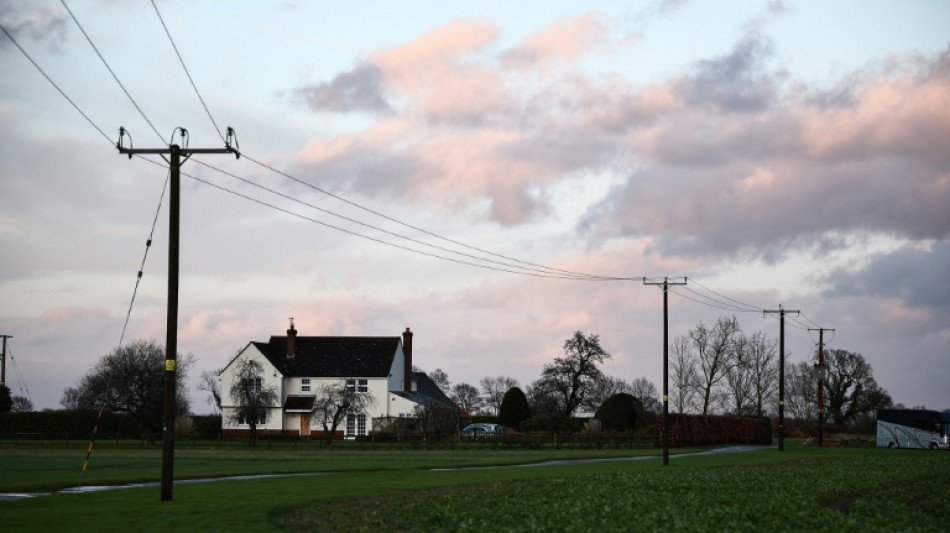
-
 Spain PM alleges 'genocide' in Gaza as rescuers say 35 killed
Spain PM alleges 'genocide' in Gaza as rescuers say 35 killed
-
Liverpool sign Bournemouth defender Kerkez

-
 Archer back in England Test squad after four-year absence
Archer back in England Test squad after four-year absence
-
Khamenei says Trump 'exaggerated' impact of US strikes on nuclear sites

-
 Spaceship carrying astronauts from India, Poland, Hungary, docks with ISS
Spaceship carrying astronauts from India, Poland, Hungary, docks with ISS
-
Europe rights court condemns France over police racial profiling

-
 Dollar slides as Trump eyes new Fed boss
Dollar slides as Trump eyes new Fed boss
-
Spotted: endangered leopard in Bangladesh

-
 India recovers data from black boxes after deadly crash
India recovers data from black boxes after deadly crash
-
Verdict expected in Italy 'forever chemicals' trial
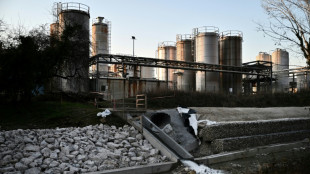
-
 China hosts Iran, Russia defence ministers against backdrop of 'turmoil'
China hosts Iran, Russia defence ministers against backdrop of 'turmoil'
-
Ireland's 'chill' Sheehan to captain new-look Lions against Force

-
 US to offer new defense of strikes on Iran nuclear sites
US to offer new defense of strikes on Iran nuclear sites
-
'Mass scale' abuses in Cambodia scam centres: Amnesty
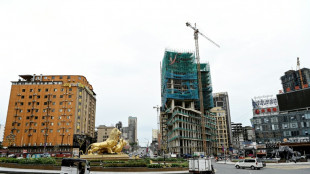
-
 Stocks mixed with eyes on Mideast, dollar hit by Trump Fed comment
Stocks mixed with eyes on Mideast, dollar hit by Trump Fed comment
-
Pools and slides as North Korea set to open 'world class' tourist resort

-
 Ireland's Sheehan to captain new-look Lions against Force
Ireland's Sheehan to captain new-look Lions against Force
-
H&M sales fall in second quarter on stronger currency

-
 Esports a pathway back to normality for Ukrainian war veterans
Esports a pathway back to normality for Ukrainian war veterans
-
The reluctant fame of Gazan photojournalist Motaz Azaiza

-
 Global cocaine market hit new record highs: UNODC
Global cocaine market hit new record highs: UNODC
-
Environment fears over $6 bn Indonesia EV battery project: NGOs

-
 Dinusha shines on debut as Sri Lanka bowl out Bangladesh for 247
Dinusha shines on debut as Sri Lanka bowl out Bangladesh for 247
-
Migrant money from Russia a lifeline for Central Asia

-
 Nigerian farms battle traffic, developers in downtown Abuja
Nigerian farms battle traffic, developers in downtown Abuja
-
Denmark to push for stricter EU migration policies

-
 Nearly one-third of Pacific nation Tuvalu seeks Australian climate visa
Nearly one-third of Pacific nation Tuvalu seeks Australian climate visa
-
White leads six Wallabies in Force side to face Lions, but no Beale

-
 Thai cannabis stores fret as government moves to tighten rules on sales
Thai cannabis stores fret as government moves to tighten rules on sales
-
Beale to spearhead First Nations and Pasifika side against Lions

-
 Wimbledon: England's garden Grand Slam
Wimbledon: England's garden Grand Slam
-
Matcha: the Japanese tea taking over the world

-
 Inter Milan, Monterrey join Dortmund in Club World Cup last 16
Inter Milan, Monterrey join Dortmund in Club World Cup last 16
-
Trail Blazers pick China's Yang in NBA draft first-round surprise

-
 Global matcha 'obsession' drinks Japan tea farms dry
Global matcha 'obsession' drinks Japan tea farms dry
-
US judge sides with Meta in AI training copyright case

-
 'Battle of Seattle' as Inter down nine-man River to advance
'Battle of Seattle' as Inter down nine-man River to advance
-
China hosts Iranian, Russian defence ministers against backdrop of 'momentous change'

-
 Stocks down with eyes on Mideast, dollar hit by Trump Fed comment
Stocks down with eyes on Mideast, dollar hit by Trump Fed comment
-
Syrian architect uses drone footage to help rebuild hometown
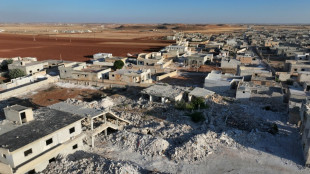
-
 Verstappen hoping upgrades can boost title defence at Red Bull home race
Verstappen hoping upgrades can boost title defence at Red Bull home race
-
After 'Dune,' Denis Villeneuve to helm next James Bond film

-
 Thailand makes new proposal to restrict cannabis sales
Thailand makes new proposal to restrict cannabis sales
-
Ecuador's most-wanted gang leader 'Fito' captured

-
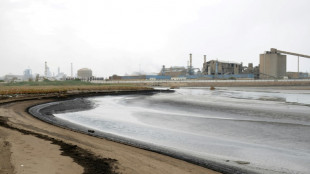 Tunisia U-turn on phosphate plant sparks anger in blighted city
Tunisia U-turn on phosphate plant sparks anger in blighted city
-
Trial of Sean 'Diddy' Combs heads into closing arguments

-
 Wallabies release Reds pair Faessler and Paisami for Lions clash
Wallabies release Reds pair Faessler and Paisami for Lions clash
-
UN Charter: a founding document violated and ignored

-
 Vinicius, Mbappe have to defend: Real Madrid's Alonso
Vinicius, Mbappe have to defend: Real Madrid's Alonso
-
US teen Cooper Flagg chosen by Mavericks with top pick in NBA draft


In the English countryside, a pylon war looms
Standing by his winter wheat field on a plot of land where tall electricity pylons are set to be built, John Stacey feels far from bright about the future.
"They will cut our farm in half," he told AFP referring to the large metal structures due to be erected across Witham, northeast of London, by the start of the next decade.
Part of a multibillion pound project approved by the UK government, it has pitted residents like farmer Stacey against those seeking to upgrade Britain's energy infrastructure.
The four pylons planned for his land are to be operated by National Grid, a privately-run company responsible for transporting electricity in England and Wales.
Once installed, they will carry power from wind and solar farms to London.
For Stacey, in his 60s, the construction on his land threatens not just where he works but also his home.
"I had long term visions of staying here for my retirement and my family running the farm," he said as seagulls flew overhead close to the North Sea.
"Can I live here with pylons and the noise they may make? Probably not," he said, adding he sees "no hope" the Labour government will scrap the plans.
National Grid has assured it will listen to the viewpoints of those effected to "limit the impact" of the pylons.
At the same time, National Grid deputy director Tom McGarry insisted the country needs "rewiring" following the closure of coal-fired power stations.
Labour sees the pylons as essential to help deliver net zero carbon emissions and improved energy security.
- Unprecedented scale -
The Witham project would be on the route to the Bramford substation, whose rows of pylons on land the size of nearly 20 football pitches emit a persistent humming.
Residents are concerned about an expansion already attracting firms to build necessary grid-linked infrastructure.
A large solar farm is under construction nearby, as is a large warehouse serving as a connection point for offshore wind turbines.
National Grid plans to invest £35 billion ($44 billion) by 2031 to transform its electricity network, a project of an unprecedented scale since the 1960s.
New production sites are in more remote areas, which means "building a lot of new transmission lines to bring that power back to population centres", noted Stephen Jarvis, a researcher at the London School of Economics.
"Some big investments are needed, not just in the UK, this is a pretty global phenomenon," he said.
Opposition groups argue that while new connections may be necessary, alternative projects such as cables buried under land and sea -- and with closer proximity to London -- have not been seriously considered.
The projects are being carried out "without consulting with communities first," said Rosie Pearson, founder of an action group for local residents in East Anglia.
- 'Pylon war' -
In a small cafe near the village of Ardleigh, east of London, Pearson met with a group of pylon opponents, whose concerns ranged from the impact on biodiversity to inadequate compensation for property owners.
There is opposition also to having 50-metre high pylons blocking picturesque views.
The group crowded around a table looking at highly detailed maps of future electric lines.
"It's the beginning of a very big pylon war," said Pearson, who is ready to fight in court to prove that other cheaper solutions are viable.
Prime Minister Keir Starmer, who came to power in July, has promised to override those he sees as "blockers" preventing big new infrastructure projects and the reform of Britain's restrictive planning rules.
"Securing Britain's clean energy future will require improving infrastructure in a cost-effective way," a government spokesperson told AFP.
"Underground cabling is more expensive, and costs are borne by the electricity billpayer," they added.
T.Ibrahim--SF-PST
